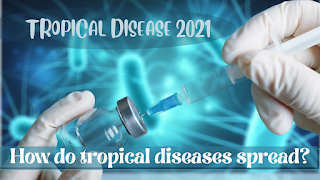What are infectious diseases so important to us ?
Infectious diseases are illnesses brought on by
bacteria, viruses, fungus, or parasites. Our bodies are home to a variety of
creatures. In most cases, they're innocuous or even beneficial. However, some
microbes can cause sickness under particular circumstances. Every year, new,
potentially hazardous bacteria, viruses, fungi and parasites arise, such as
SARS (severe acute respiratory syndrome).
Pathogens that have previously been identified can
develop to become resistant to antibiotics and other therapies. We are also
more prone to the transmission of infectious pathogens due to population
density and easy mobility. Concerns about bio terrorism have re-ignited interest
in illnesses that have been eradicated or are extremely rare, such as smallpox
and anthrax. With its ability to cure and prevent disease, identify particular
disease causes (microbes) and deal with different, often catastrophic
outbreaks, infectious diseases is a vast subject that is almost unique in
current medicine. Antibiotic resistance, the growing repercussions of worldwide
travel, the emergence of wholly new pathogen diagnostics and healthcare reform
with an emphasis on infection prevention and cost in money and lives have all
increased the value of infectious disease practitioners.
Measles, malaria, HIV and yellow fever are
examples of illnesses that impact the entire body. Other infections are limited
to a single organ or body system. The upper respiratory tract is where the most
common local infections, such as the common cold, arise. Tuberculosis is a
dangerous and typically local illness of the respiratory tract that is a
worldwide issue. The digestive tract, the lungs, the reproductive and urinary
tracts, as well as the eyes and ears, are all common infection sites. If local
infections damage essential organs like the heart, brain, or liver, they can
cause catastrophic sickness. They can also spread through the bloodstream,
resulting in a wide range of symptoms. The virulence of infectious agents, the
amount of organisms in the infecting inoculum, and the immune system's reaction
all has a role in the outcome of any infection.



I am from USA. I was suffering from HEPATITIS B for over 3 years, i was hopeless until one of my friend directed me to a herbal DR. Dr Chike on youtube, she said the Dr has herbal medicine that treat HEPATITIS B also said the Dr has helped people with. HERPES, CANCER, DIABETES, HPV, HERPES, HSV 1 .2, Fever, Fibromyalgia, Fatigue and chronic pains. I never believed her but after a lot of talk. I decided to contact him, just few days ago i contacted him and he told me what to do which i did and he sent to me a herbal medicine via {DHL} with prescriptions on how i will take it for a period of days. After i finished taking the medicine for 2 weeks he told me to go for a test which i also did and when the result came out i was surprised to see that i am negative. I am proud to tell you that I am the happiest person on earth. Big thanks to Dr Chike herbs .. I pray you find a solution in him. For more information on how to get treated Contact Dr on, text/call via: +1 (719) 629 0982 WhatsApp . +233502715551, or Facebook page, @ Dr Chike Herbal Remedy.
ReplyDelete